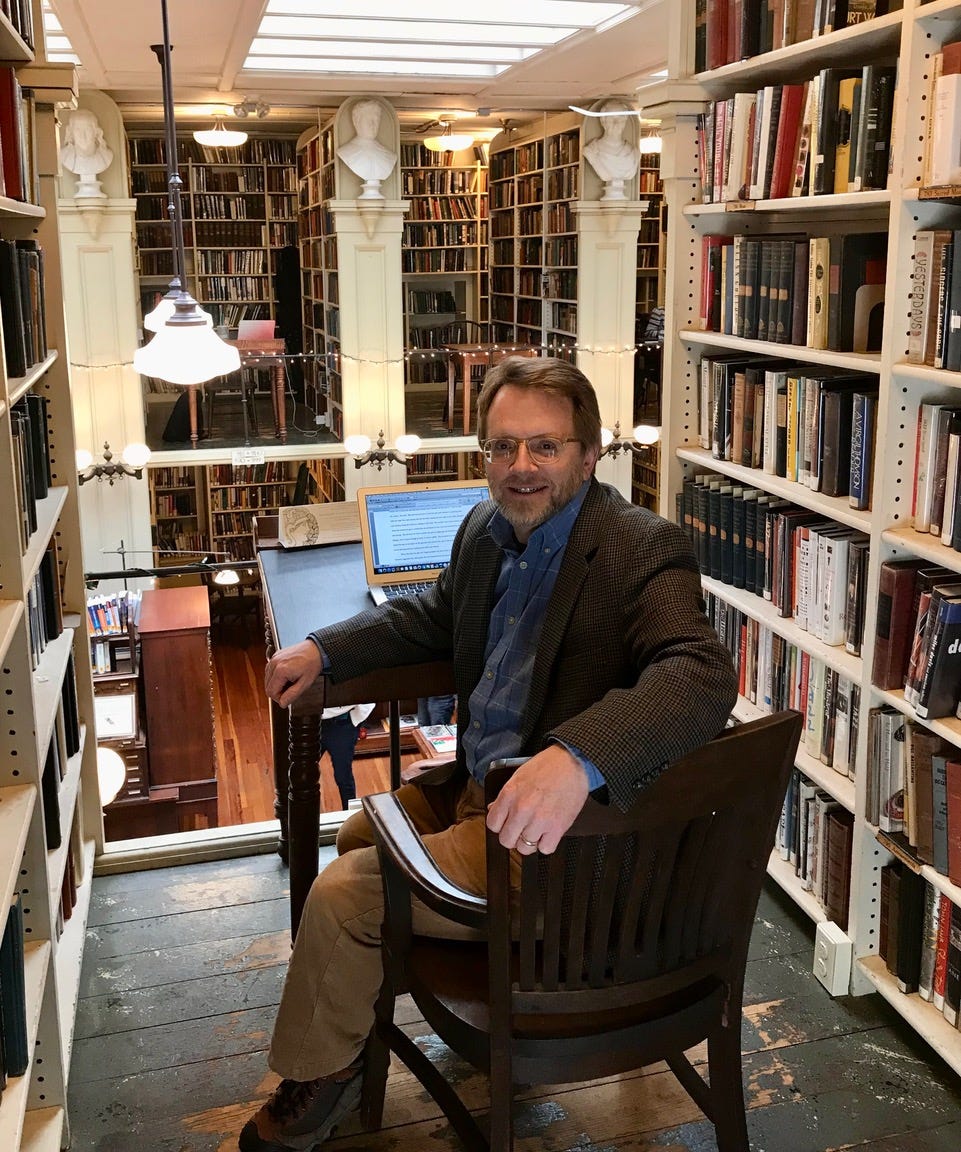History Professor to Discuss Treason and His Historical Novel at Readers and Writers Festival
Brian Carso will discuss his novel, based on Benedict Arnold's story, with ethicist Joseph Curran at Milford Readers and Writers Festival
The only criminal law in the U.S. Constitution concerns treason, according to Brian Carso, a history professor at Misericordia University. He is also a lawyer, Delaware Valley school board member, author of a book on treason, “Whom Can We Trust Now?” and now a novelist. He will discuss his new novel, “Gideon’s Revolution,” which resulted from his fascination with treason, in a conversation with ethicist Joseph Curran, at the Milford Readers and Writers Festival on Sunday, Sept. 24.
Other than the section explaining treason, Carso said, “The rest of the Constitution is about people’s rights and setting up the government.”
He began writing about treason in 1991 in an article for a law journal. Then, as he pursued a Ph.D. in legal history at Boston University, he wrote his thesis on treason.
“What does treason and betrayal mean, legally and culturally?” was the question he wanted to answet.
Carso went home to Cooperstown, NY, planning to be a “small town lawyer,” while he wrote his thesis. However, he detoured into the Otsego county clerk post, which led him to other government posts, including assistant commissioner of the New York State Department of Motor Vehicles.
At that point, he said, “I just wanted to get back to teaching.”
So he took a job teaching law and American history at Misericordia University and continued his exploration of treason. As he researched a chapter on Benedict Arnold, a respected Revolutionary War general who schemed to surrender West Point to the British and eventually abandoned the Continental army to join the British, Carso said he saw Arnold’s story as “representing questions of loyalty and betrayal. The meaning changes over time.”
At that time, the 1780’s, Carso saw Benedict Arnold as giving in to greed, having felt passed over for advancement he thought he deserved. Several decades later, with the Civil War, Carso saw divisiveness as the catalyst for a different kind of treason that could “undo the democratic experiment.”
While researching Arnold’s story in historical archives, Carso was intrigued by a description of a spy mission to capture Arnold. That became the foundation for his novel, which took five years to write.
Along the way, he said, “I met many historical fiction authors. I asked them how true to history fiction needs to be. They said they used history to serve the story, but I wanted to include as much truth as possible.”
To become more familiar with the truth, Carso took an opportunity to stay in a house in Quebec City where Arnold had recuperated from an injury in 1775. Carso also visited a colonial burial ground in Norwich, Ct., with 1000 headstones—one third for children, where Arnold’s siblings were buried.
“These were important in Arnold’s history,” Carso said.
Why did Arnold commit treason?
“He felt he should have been promoted earlier, but he was derided,” said Carso. “His family was upper middle class, and he was prepared to go to Yale, but his siblings died, and his father became an alcoholic. He was pulled from school and became an apothecary.
“He had many profound humiliations as a teenager. Waving his sword on horseback in battle was a way of making up for his loss of honor as a teen. He was one of the best battlefield generals, but he was shot in Quebec, and his leg was shattered in Saratoga. Washington sent him to Philadelphia to be a military governor, and he rubbed political leaders the wrong way. He wasn’t a good politician.”
After his first wife died while he was at war, Arnold married the British Peggy Shippen, which Carso says may have drawn him to the British side, to which he defected, then became a brigadier general. A “fake deserter” was sent to try to capture Arnold by throwing him into a boat when he walked to a privy at night, but Arnold was sent to Richmond, VA, before the plan could be carried out, Carso said. With the British, he raided New London, Ct., near his birthplace.
“What’s the meaning of loyalty and betrayal in a democracy? Nothing is foreordained,” said Carso. “The U.S. is a democratic republic, but few last. We need to think about history and our obligation to insure the U.S. experiment continues. My novel is a spy story, but it should remind us of the work needed to keep a democracy healthy and the cost of indulging inner needs at democracy’s expense.”
Carso said he is now working on a novel about a mid-20th Century war photographer, based on Robert Capa, who was a friend of author Ernest Hemingway.
Where Fiction Meets History
Sunday, Sept. 24 — 3 – 4:30 p.m. – Good Shepherd Episcopal Church, 110 W. Catharine St., Milford
Milford Readers and Writers Festival information and tickets: milfordreadersandwriters.com
Gideon’s Revolution and the Treason of Benedict Arnold, with author Brian Carso and ethicist Joseph Curran. Admission is free
Community focused news can only succeed with community support. Please consider the various subscription levels.




